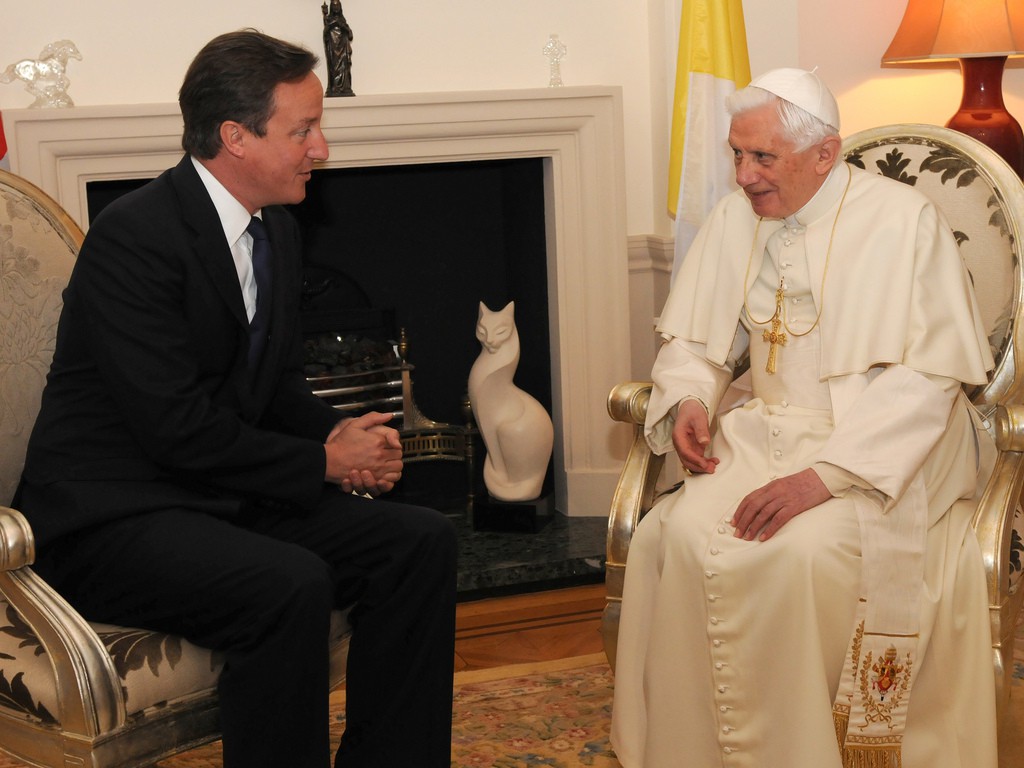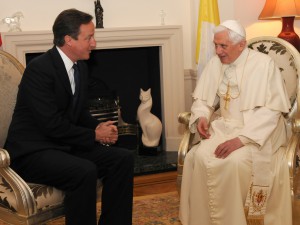11th February 2014
The Legacy of Benedict XVI


Much is likely to be written over the next few days about the legacy of Pope Benedict, a year since he announced he would be stepping down from office. No doubt many will be ready with their “compare and contrast” pieces, setting up one Pope against the other.
Whatever we think of that approach, I think we can safely leave that to the media. I want to flag up a couple of other aspects.
First of all, the importance of Benedict XVI to the relationship with the United Kingdom. I wrote about this on this site when he stepped down. I said at the time that I was sure this would continue under his successor. I am delighted to report that it has done. But no one who wishes to see ever stronger UK-Holy See relations can doubt that the Pontificate of Benedict XVI represented a significant phase in the positive development of ties between Britain and the Holy See.
Second, history will I am sure record the influence of Pope Benedict’s reign on both the choice of his successor, and the way Pope Francis’s Pontificate has developed. The election of Pope John Paul II was revolutionary, the first non-Italian for hundreds of years. The election of Benedict XVI, while also a European, consolidated the idea that the Papacy, with its global concerns and responsibilities, could no longer be the exclusive preserve of one country, however important that country for the Catholic Church. That was also one of the revolutionary messages of Pope Benedict’s renunciation of office. Precedents, he was telling the College of Cardinals, including his at the time unknown successor, are there to be broken, even at the Holy See.
Third, it is clear that Pope Benedict’s teaching as Pope has had enormous influence on his successor. I should clarify that I am not offering an opinion here on what appears a rather tedious and artificial debate over continuity versus change between Popes Benedict and Francis. I do not think either of them see their successive Pontificates in those terms. Rather, that if you look carefully at much of what Pope Francis has done, from his first (joint) encyclical to the Apostolic Exhortation Evangelii Gaudium, from his tackling of problems at the IOR to those of clerical child sexual abuse, much of what we have seen in Pope Francis’s first year has been built on the words and actions of his predecessor. Of course, in Pope Francis’s own inimitable and, yes, very different style.
A further word. I wonder how far contemporaries were able to gauge correctly the legacy of Popes as diverse, for example, as Gregory VII, Innocent III, Julius II, Pius IX or Benedict XV? Perspectives change. If we learn one thing from history, it is that we should never be too quick to judge.
I agree. Contrary to what often seems to be thought, it seems to me that it would be too much of a leap to have expected the Catholic Church to have moved directly from John Paul II to Francis